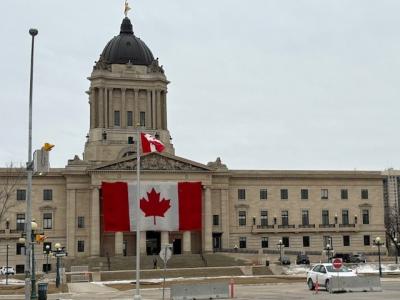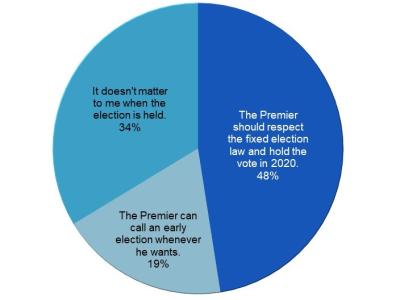Manitobans are evenly split on whether to levy additional taxes on those who choose not to get the COVID-19 vaccine. Slightly more than one-half are in favour of this idea (which was recently floated by the Quebec government and has been introduced in some European countries), including three in ten who strongly support introducing this levy. Conversely, three in ten strongly oppose this idea, with slightly more than one in ten expressing moderate opposition to this notion of taxing adults who choose not to get vaccinated.
When asked to express their preference for how this “unvaxxed tax” might work, Manitobans are slightly more likely to be in favour of increasing taxes to pay for health care and providing those who get vaccinated with a tax credit. However, about three in ten favour a direct surcharge on those who refuse to be vaccinated and do not have a medical exemption (which is the approach taken in Austria and Greece). One-third, meanwhile, are unsure or express no preference.
Provincial Government Performance on COVID-19
Only three in ten Manitobans approve of newly-minted Premier Heather Stefanson’s performance managing the pandemic – a level comparable to that of former premier Brian Pallister shortly before he resigned in the summer of 2021. Four in ten praise the performance of Health Minister Audrey Gordon (-12% vs. October 2021), while more than seven in ten continue to approve of the work of Dr. Joss Reimer (the province’s medical lead for vaccine implementation) and Dr. Brent Roussin (the chief provincial public health officer).
Views on the provincial government’s performance have reached their lowest point since the beginning of the pandemic. Currently, only two in five approve of the work the Manitoba government has done to protect Manitobans’ health (40%, -10% vs. October 2021) and deal with the economic impact of COVID-19 (40%, -9% vs. October 2021).
Experiences With COVID and Confidence in Vaccines
At this stage of the pandemic, nearly all Manitobans know someone who has been infected with COVID-19. Indeed, this includes nearly three in ten who have been diagnosed or believe they have had COVID-19 but haven’t confirmed the diagnosis with a test. Certain groups of Manitobans are more likely to have directly experienced COVID-19, particularly younger adults, those living in southern Manitoba and those with very young children. Racialized Manitobans (including Indigenous peoples and those who identify as a person of colour) are nearly twice as likely to say they have had COVID-19, while those who are not vaccinated are nearly three times as likely to have had this virus than those who are fully vaccinated.
Given how widespread COVID-19 has been – especially during the past two months – it is perhaps no surprise that two in five Manitobans agree they are losing confidence in the vaccine’s ability to prevent people from getting sick. Confidence in the COVID-19 vaccine is waning in many of the same groups that are more likely to have had the virus themselves – as well as among those with lower levels of educational attainment.
Disclosure Statement
Probe Research is a member of the Canadian Research Insights Council (CRIC) and confirms that this research fully complies with all CRIC Standards including the CRIC Public Opinion Research Standards and Disclosure Requirements. Learn more at: https://www.canadianresearchinsightscouncil.ca/standards/por/
Methodology
Between January 19 and 26, 2022, Probe Research surveyed a representative sampling of N=800 adults residing in Manitoba. This included members of Probe Research’s online proprietary panel, as well as members of a national online research panel. Because an online survey is a sample of convenience, no margin of error can be ascribed. For the purposes of comparison, a non-probabilistic sample of N=800 would have a margin of error of ± 3.5 percentage points, 19 times out of 20. Minor statistical weighting has been applied to this sample to ensure that age and gender characteristics properly reflect known attributes of the province’s population. The questionnaire was designed independently by Probe Research.




